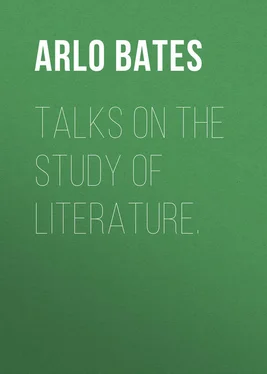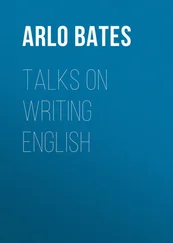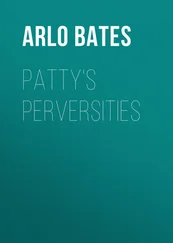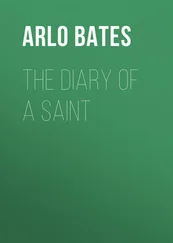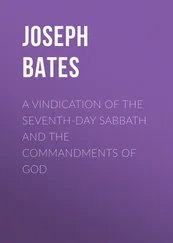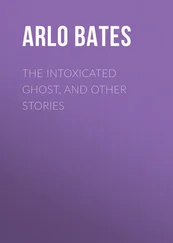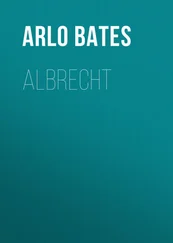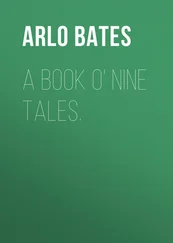Arlo Bates - Talks on the study of literature.
Здесь есть возможность читать онлайн «Arlo Bates - Talks on the study of literature.» — ознакомительный отрывок электронной книги совершенно бесплатно, а после прочтения отрывка купить полную версию. В некоторых случаях можно слушать аудио, скачать через торрент в формате fb2 и присутствует краткое содержание. Жанр: foreign_antique, foreign_prose, на английском языке. Описание произведения, (предисловие) а так же отзывы посетителей доступны на портале библиотеки ЛибКат.
- Название:Talks on the study of literature.
- Автор:
- Жанр:
- Год:неизвестен
- ISBN:нет данных
- Рейтинг книги:5 / 5. Голосов: 1
-
Избранное:Добавить в избранное
- Отзывы:
-
Ваша оценка:
- 100
- 1
- 2
- 3
- 4
- 5
Talks on the study of literature.: краткое содержание, описание и аннотация
Предлагаем к чтению аннотацию, описание, краткое содержание или предисловие (зависит от того, что написал сам автор книги «Talks on the study of literature.»). Если вы не нашли необходимую информацию о книге — напишите в комментариях, мы постараемся отыскать её.
Talks on the study of literature. — читать онлайн ознакомительный отрывок
Ниже представлен текст книги, разбитый по страницам. Система сохранения места последней прочитанной страницы, позволяет с удобством читать онлайн бесплатно книгу «Talks on the study of literature.», без необходимости каждый раз заново искать на чём Вы остановились. Поставьте закладку, и сможете в любой момент перейти на страницу, на которой закончили чтение.
Интервал:
Закладка:
It is difficult, on the other hand, to feel that there is any moral excuse for prejudices which are the result of individual whims rather than of deliberate judgment. An opinion should not be some burr caught up by the garments unawares; but a fruit carefully selected as the best on the tree. The fact is that the effort of forming an intelligent judgment is more severe than most persons care to undertake unless absolutely forced to it. It sometimes seems as if the whole tendency of modern life were in the direction of cultivating mental dexterity until the need of also learning mental concentration is in danger of being overlooked. Men are trained to meet intellectual emergencies, but not to endure continued intellectual strain. The difficulty which is to be conquered by a sudden effort they are able to overcome, but when deliberation and continuous mental achievement are required, the weakness of their training is manifest. The men, and perhaps still more the women, of to-day are ready to decide upon the merits of a book in the twinkling of an eye; and it is to be acknowledged that these snap judgments are reasonable far more often than could have been expected. When it comes, however, to having a reason for the faith that is in them, it is lamentable how many intelligent persons prove utterly incapable of fairly and logically examining literature; and it must be conceded that there should be some other test by which to decide whether a book is to be included under the gracious name of literature than the dogmatic assertion: "Well, I don't care what anybody says against it; I like it!"
We have discussed the distinctions by which it may be decided what is to be considered literature; and, did space warrant, we might go on to examine the principles which determine the rank of work. They are of course largely to be inferred from what has been said already. The merit of literature will be chiefly dependent upon the closeness with which it conforms to the rules which mark the nature of literature. The more fully genuine its emotion, the more adequate its expression, the higher the scale in which a book is to be placed. The more sane and healthful, the more entirely in accord with the needs and springs of general human life, the greater the work. Indeed, beyond this there is little to say save that the nobility of intention, the ethical significance of the emotion embodied, mark the worth and the rank of a composition.
I have tried to define literature, and yet in the end my strongest feeling is that of the inadequacy of my definition. He would be but a lukewarm lover who was capable of framing a description which would appear to him to embody fully the perfections of his mistress; and art is a mistress so beautiful, so high, so noble, that no phrases can fitly characterize her, no service can be wholly worthy of her. Life is full of disappointment, and pain, and bitterness, and that sense of futility in which all these evils are summed up; and yet even were there no other alleviation, he who knows and truly loves literature finds here a sufficient reason to be glad that he lives. Science may show man how to live; art makes living worth his while. Existence to-day without literature would be a failure and a despair; and if we cannot satisfactorily define our art, we at least are aware how it enriches and ennobles the life of every human being who comes within the sphere of its wide and gracious influence.
III
THE STUDY OF LITERATURE
When it is clearly understood what literature is, there may still remain a good deal of vagueness in regard to the study of it. It is by no means sufficient for intellectual development that one have a misty general share in the conventional respect traditionally felt for such study. There should be a clear and accurate comprehension why the study of literature is worth the serious attention of earnest men and women.
It might at first thought seem that of this question no discussion is needed. It is generally assumed that the entire matter is sufficiently obvious, and that this is all that there is to it. The obvious, however, is often the last to be perceived; and such is the delusiveness of human nature that to call a thing too plain to need demonstration is often but a method of concealing inability to prove. Men are apt to fail to perceive what lies nearest to them, while to cover their blindness and ignorance they are ready to accept without reasoning almost any assumption which comes well recommended. The demand for patent medicines, wide-spread as it is, is insignificant in comparison to the demand for ready-made opinions. Most men accept the general belief, and do not trouble themselves to make it really theirs by examining the grounds upon which it is based. We all agree that it is well to study literature, it is probable; but it is to be feared that those of us who can say exactly why it is well do not form a majority.
The word "study," it may be remarked in passing, is not an entirely happy one in this connection. It has, it is true, many delightful associations, especially for those who have really learned how to study; but it has, too, a certain doleful suggestiveness which calls up painful memories of childhood. It is apt to bring to mind bitter hours when some example in long division stood like an impassable wall between us and all happiness; when complex fractions deprived life of all joy, or the future was hopelessly blurred by being seen through a mist of tears and irregular French verbs. The word "study" is therefore likely to seem to indicate a mechanical process, full of weariness and vexation of spirit. This is actually true of no study which is worthy of the name; and least of all is it true in connection with art. The word as applied to literature is not far from meaning intelligent enjoyment; it signifies not only apprehension but comprehension; it denotes not so much accumulation as assimilation; it is not so much acquirement as appreciation.
By the study of literature can be meant nothing pedantic, nothing formal, nothing artificial. I should like to call the subject of these talks "Experiencing Literature," if the verb could be received in the same sense as in the old-fashioned phrase "experiencing religion." That is what I mean. The study of literature is neither less nor more than experiencing literature, – the taking it to heart and the getting to its heart.
To most persons to study literature means nothing more than to read. There is, it is true, a vague general notion that it is the reading of some particular class of books, not always over clearly defined. It is not popularly supposed that the reading of an ordinary newspaper is part of the study of literature; while on the other hand there are few persons who can imagine that the perusal of Shakespeare, however casual, can be anything else. Since literary art is in the form of written works, reading is of course essential; but by study we mean something more grave and more fruitful than the mere surface acquaintance with books, no matter how high in the scale of excellence these may be.
The study of literature, in the true signification of the phrase, is that act by which the learner gets into the attitude of mind which enables him to enter into that creative thought which is the soul of every real book. It is easily possible, as every reader knows, to read without getting below the surface; to take a certain amount of intellectual account of that which we skim; to occupy with it the attention, and yet not to be at all in the mood which is indispensable for proper comprehension. It is this which makes it possible for the young girl of the present day to read novels which her more sophisticated brothers cannot look at without blushing to see them in her hands – at least, we hope that it is this! We all have moments when from mental weariness, indifference, indolence, or abstraction, we slide over the pages as a skater goes over the ice, never for a moment having so much as a glimpse of what is hidden beneath the surface. This is not the thing about which we are talking. We mean by study the making our own all that is contained in the books which we read; and not only all that is said, but still more all that is suggested; all that is to be learned, but above everything all that is to be felt.
Читать дальшеИнтервал:
Закладка:
Похожие книги на «Talks on the study of literature.»
Представляем Вашему вниманию похожие книги на «Talks on the study of literature.» списком для выбора. Мы отобрали схожую по названию и смыслу литературу в надежде предоставить читателям больше вариантов отыскать новые, интересные, ещё непрочитанные произведения.
Обсуждение, отзывы о книге «Talks on the study of literature.» и просто собственные мнения читателей. Оставьте ваши комментарии, напишите, что Вы думаете о произведении, его смысле или главных героях. Укажите что конкретно понравилось, а что нет, и почему Вы так считаете.
